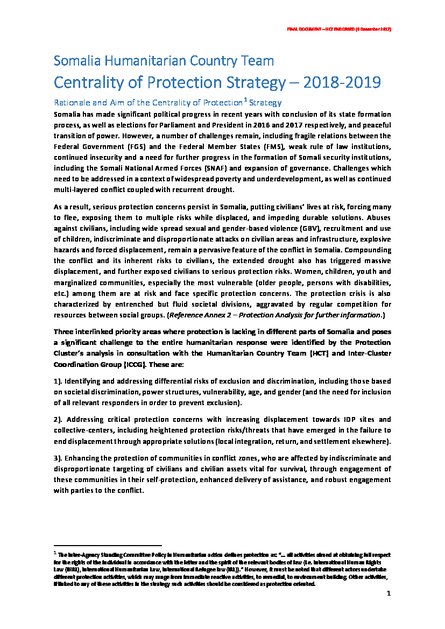
Somalia has made significant political progress in recent years with conclusion of its state formation process, as well as elections for Parliament and President in 2016 and 2017 respectively, and peaceful transition of power. However, a number of challenges remain, including fragile relations between the Federal Government (FGS) and the Federal Member States (FMS), weak rule of law institutions, continued insecurity and a need for further progress in the formation of Somali security institutions, including the Somali National Armed Forces (SNAF) and expansion of governance. Challenges which need to be addressed in a context of widespread poverty and underdevelopment, as well as continued multi-layered conflict coupled with recurrent drought.
As a result, serious protection concerns persist in Somalia, putting civilians’ lives at risk, forcing many to flee, exposing them to multiple risks while displaced, and impeding durable solutions. Abuses against civilians, including wide spread sexual and gender-based violence (GBV), recruitment and use of children, indiscriminate and disproportionate attacks on civilian areas and infrastructure, explosive hazards and forced displacement, remain a pervasive feature of the conflict in Somalia. Compounding the conflict and its inherent risks to civilians, the extended drought also has triggered massive displacement, and further exposed civilians to serious protection risks. Women, children, youth and marginalized communities, especially the most vulnerable (older people, persons with disabilities, etc.) among them are at risk and face specific protection concerns. The protection crisis is also characterized by entrenched but fluid societal divisions, aggravated by regular competition for resources between social groups. (Reference Annex 2 – Protection Analysis for further information.)